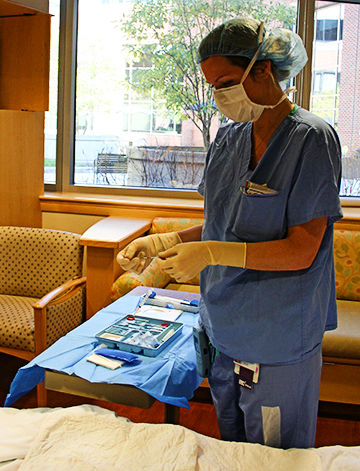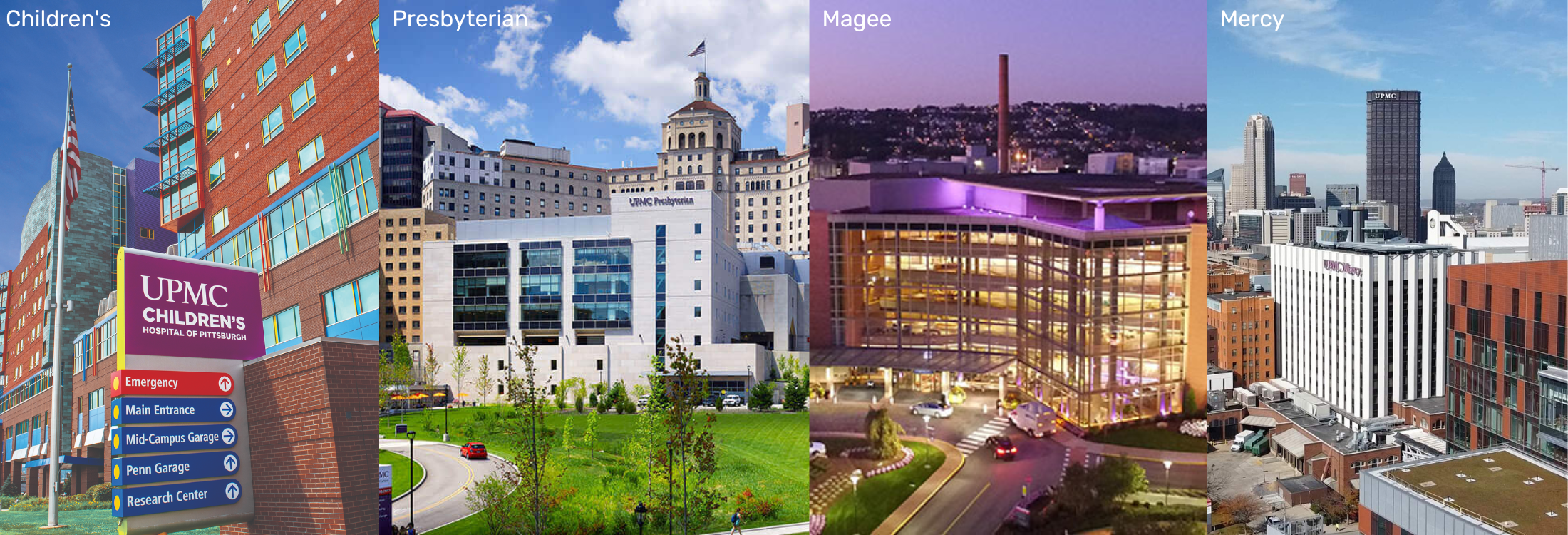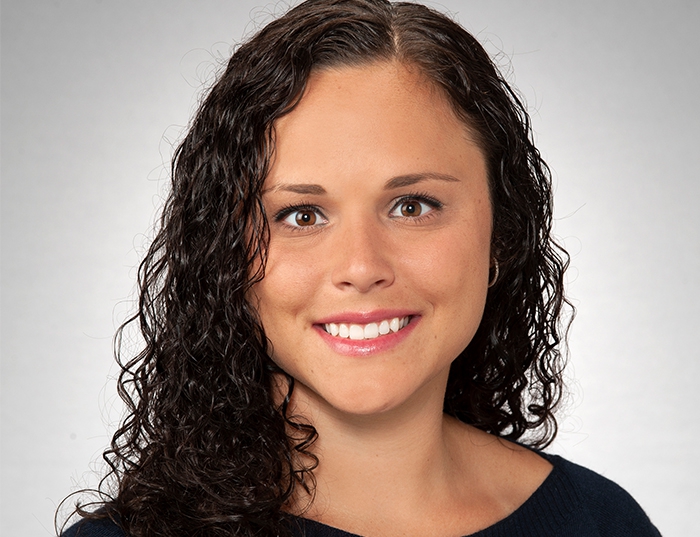 15 positions available per year
15 positions available per year
Now accepting post-match applications for the 2024-2025 academic year
Our Regional Anesthesiology Fellowship Program comprises 12 months of subspecialty training for qualified physicians who have completed an anesthesiology residency. Preference is given to mature individuals with significant experience in regional anesthesia who are interested in becoming experts in acute pain and regional anesthesiology. Fellowship training not only focuses on the development of expertise in the practice and theory of regional anesthesiology and acute pain management techniques, but also the understanding of the related physiology and pharmacology, patient outcomes, and financial-related issues.
Fellows gain practice in our acute postoperative interventional pain service, performing, under supervision, lower and upper extremity, paravertebral, thoracic wall (PECS I, PECS II, serratus anterior), quadratus lumborum, and TAP blocks. Blocks involve both single shot and continuous techniques. Emphasis is placed on ultrasound-guided and neuro-stimulation techniques. Management of patients into the postoperative period in association with ERAS protocols is emphasized.
The fellowship is ideal for trainees who want to become efficient in performing peripheral and truncal blocks. Each of our regional fellows is expected to perform over 1,000 blocks annually. Fellows are required to attend weekly formal lectures, monthly journal clubs, and pediatric regional ultrasound workshops. Fellows will also attend an annual fresh cadaver dissection workshop; present at local, regional, and national meetings; and participate in clinical research.
The fellowship has incorporated all ACGME program requirements into the training program. Potential fellows should expect to far exceed all minimum procedural and experience requirements in the areas of regional, acute, trauma, chronic, and pediatric pain. The total number of blocks available to our fellows at all sites is over 42,000, which includes 4,103 continuous nerve blocks and 8,336 spinals.
Our regional anesthesia training is divided among seven hospitals and three ambulatory centers to maximize the variety of experiences. Extensive experience in pediatric and obstetrics is available through UPMC Children’s Hospital of Pittsburgh and UPMC Magee-Womens Hospital. UPMC Mercy and UPMC Presbyterian provide extensive experience in trauma and burns. UPMC Passavant provides extensive experience in paravertebral nerve blocks and lower extremity blocks. Our ambulatory sites provide extensive experience in extremity nerve blocks. At each site, fellows train under the direct supervision of a Regional Anesthesia and Acute Pain faculty member. Our faculty is responsible for clinical and didactic education, providing feedback and evaluation of fellow knowledge and technical skill level.
Post-Match Application Process
Our Regional Anesthesiology/Acute Pain Medicine Division faculty select up to 15 fellows a year based on written applications, academic records, documented performance, and interviews. Applications are accepted on a continual basis.
The program welcomes applicants with the following credentials:
- ACGME or ACGMEi anesthesiology residency training: Application materials must include evidence of satisfactory completion of an ACGME- or ACGMEi-accredited anesthesiology residency program prior to the fellowship start date.
- Non-ACGME accredited anesthesiology residency training: Application materials must include certificate of satisfactory completion of an anesthesiology residency program and a summative evaluation letter of training from the core specialty.
Out-of-Match
Please complete the ASRA common application and submit it along with the documents listed below to Ann Martin, Academic Manager at martina16@upmc.edu.
San Francisco (SF) Match
Please register with the SF Match, complete the application, and upload the following documents to the SF Match site for a complete application.
- Current CV
- Personal Statement
- USMLE scores for steps 1, 2, 3
- Three letters of reference, one of which must be from your residency director
- Copy of dean's letter and medical student transcript
- Copy of most recent in-training examination
- Copy of ECFMG certification
Also required, if applicable:
Please email a copy of your board certification and anesthesiology residency completion certificate to Ann Martin, Academic Manager at martina16@upmc.edu.

Participating Hospitals
- UPMC Children’s Hospital of Pittsburgh: A pediatric hospital and trauma center with orthopedic, oncology, thoracic, urology, GI, and general and plastic surgery services.
- UPMC Magee-Womens Hospital: A women’s hospital with orthopedic, gynecology, oncology, and bariatrics services and a labor and delivery suite that manages over 10,000 births per year.
- UPMC Mercy: A university hospital and Level I trauma center with an emphasis on joint replacement, orthopedic oncology, thoracic, urology, GI, general surgery, plastic surgery, trauma, and burn cases.
- UPMC Passavant: A community hospital and ambulatory center with an emphasis on joint replacement, orthopedic oncology, thoracic, urology, GI, general surgery, and plastic surgery cases.
- UPMC Shadyside: A community hospital with an emphasis on joint replacement, orthopedic oncology, thoracic, urology, GI, general surgery, and plastic surgery cases.
- UPMC Presbyterian: A university Level I trauma center hospital with an emphasis on trauma, thoracic, urology, GI, general surgery, plastic surgery, sports medicine, and transplantation cases.
- UPMC St. Margaret: A community hospital with an emphasis on family-centered care of patients from children to seniors and comprehensive perioperative care, including preoperative assessment, regional analgesic modalities, and post-anesthetic care of both inpatient and ambulatory patients.
Participating Ambulatory Centers
- UPMC Passavant – Cranberry
- UPMC South Surgery Center – Bethel Park
- UPMC St. Margaret Harmar Outpatient Center
 |
 |
Nicholas Schott, MD
|
Nicole Verdecchia, MD
|
For more information about our Regional Anesthesiology & Acute Pain Medicine Fellowship, please contact Ann Martin, Academic Manager at martina16@upmc.edu or 412-692-4572.

